IVF In Lubbock, TX
In Vitro Fertilization
In vitro fertilization (IVF) involves fertilizing an egg outside of the body. Any resulting embryos can be cryopreserved for later use or transferred into a woman's uterus with the aim of achieving a successful pregnancy.
Exploring the Possibilities of IVF
Exploring the Possibilities of IVF

Who is IVF For?
Suggested for individuals facing challenges related to conception. This includes situations involving poor egg and/or sperm quality, unexplained infertility, tubal factor infertility (such as blocked fallopian tubes), recurrent failed fertility treatments like intrauterine inseminations (IUI), as well as various other medical or personal factors contributing to infertility.
IVF vs ICSI
In traditional IVF (In Vitro Fertilization), sperm and eggs are placed together in a petri dish, allowing the sperm to naturally swim and find the egg for fertilization. Once fertilization occurs, the resulting embryos are typically observed for a few days before being transferred to the uterus.
On the other hand, ICSI (Intracytoplasmic Sperm Injection) is a specialized form of IVF. Instead of allowing sperm to naturally penetrate the egg, in ICSI, a single sperm is selected and directly injected into the center of an egg using a fine needle. This method is particularly useful in cases where there are issues with sperm quality or quantity, as it bypasses the need for sperm to penetrate the egg on its own.
While traditional IVF relies on natural fertilization, ICSI involves the precise injection of a single sperm into an egg to achieve fertilization. Both techniques are used to assist couples with infertility in achieving pregnancy, with the choice between them depending on individual circumstances and the recommendations of fertility specialists.
The Process
-
You will be responsible for administering medications aimed at stimulating the maturation of multiple eggs within the ovaries and regulating the timing of ovulation.
-
You will undergo monitoring through ultrasound and blood tests to assess your response to the medications and determine the optimal timing for scheduling your egg retrieval procedure.
-
During the procedure, eggs will be retrieved from the ovaries and carefully examined by an embryologist. If deemed suitable, mature eggs can be promptly fertilized following the retrieval process.
-
Mature eggs will undergo insemination with a sperm sample, which may be provided by a partner and/or donor, under the supervision of our medical team.
-
Fertilized eggs, also known as embryos, will be allowed several days for development under controlled conditions.
-
Healthy embryos that develop appropriately can be transferred to the uterus for potential implantation, offering the chance for successful pregnancy. Additionally, embryos can undergo biopsy for preimplantation genetic testing (PGT), providing valuable insights into genetic health. For those looking to preserve embryos for future use, cryopreservation is available, allowing embryos to be stored until needed. Furthermore, embryos designated for future use can be thawed and transferred during a subsequent menstrual cycle through a process known as a frozen embryo transfer (FET), providing flexibility and convenience in family planning.

At Pelex, we recognize that the path to parenthood through IVF can be filled with challenges, but you don't have to face it alone. Our caring team is dedicated to offering the knowledge, assistance, and motivation necessary to achieve your dream of starting or expanding your family.
Take The Next Step.
If you're considering IVF as an option to address your fertility concerns, we encourage you to arrange a consultation with one of our skilled fertility specialists. Collaboratively, we'll devise a customized plan tailored to your individual requirements, guiding you towards fulfilling your aspirations of starting or expanding your family.




